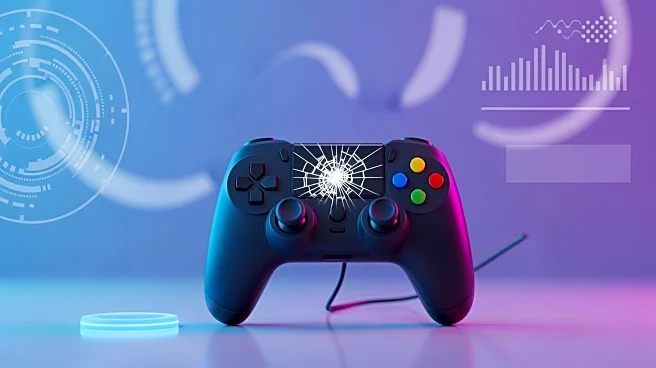What's Happening?
The Steam page for the post-apocalyptic shooter game Misery has been taken down following a DMCA takedown notice from GSC Game World, the creators of the Stalker series. Platypus Entertainment, the developers of Misery, allege that the takedown is based
on claims of copyright infringement related to GSC's intellectual property. Platypus disputes these claims, asserting that Misery is an original creation with no unauthorized use of GSC's content. The developers are currently appealing the takedown and have expressed their intention to continue updating the game.
Why It's Important?
This incident highlights the complexities and challenges of intellectual property rights in the gaming industry, particularly for independent developers. The takedown could have significant financial and reputational impacts on Platypus Entertainment, as the removal from Steam limits their ability to sell the game. It also raises broader questions about the balance of power between large gaming companies and smaller developers, and the potential for misuse of copyright claims to stifle competition. The situation may prompt discussions about the need for clearer guidelines and protections for indie developers in the digital marketplace.
What's Next?
Platypus Entertainment has filed an appeal against the takedown and is awaiting a review. If the appeal is successful, the game could be reinstated on Steam. However, if GSC Game World pursues legal action, the dispute could escalate into a court case. The outcome of this situation could set a precedent for how similar cases are handled in the future, potentially influencing the strategies of both large and small game developers regarding intellectual property rights.
Beyond the Headlines
The dispute may also have a political dimension, given GSC Game World's Ukrainian origins and alleged pro-Russian sentiments within Platypus' community. This adds a layer of complexity to the situation, as geopolitical tensions could influence public perception and stakeholder responses. The case underscores the intersection of technology, law, and international relations in the global gaming industry.
















